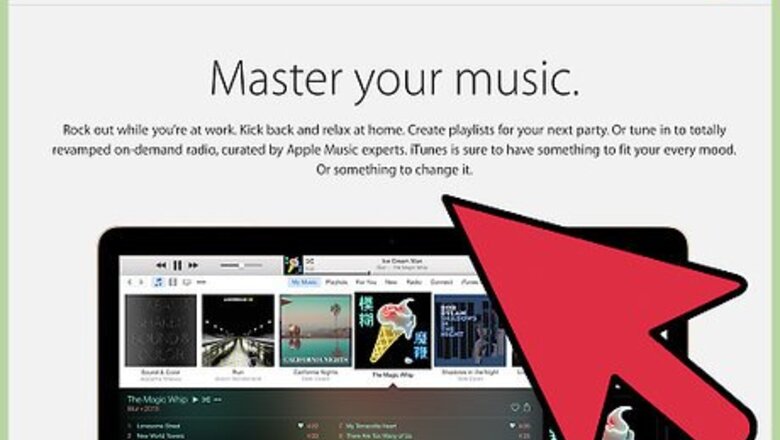
views
Transferring Purchased Tracks (All iPod Devices)
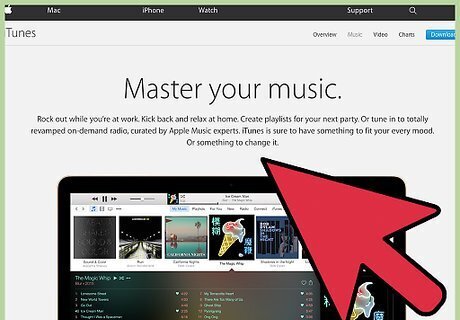
Know what will be transferred. If you are moving from an old computer to a new one, and all of your music was purchased through iTunes, you can transfer all the purchased tracks on your iPod to your new computer. This is most useful for users whose library consists mainly of purchased tracks and ripped CDs. If you have music from other sources (online downloads, CDs that are now gone, etc.), or are trying to share music with a friend, see one of the following sections.
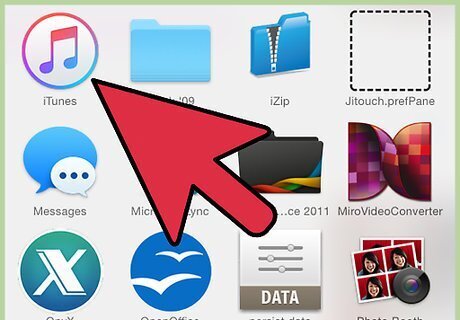
Open iTunes on the new computer. You will need to authorize the computer with your Apple ID to allow your purchased tracks to be copied back to the computer. Click here for instructions on downloading and installing iTunes on your new computer.
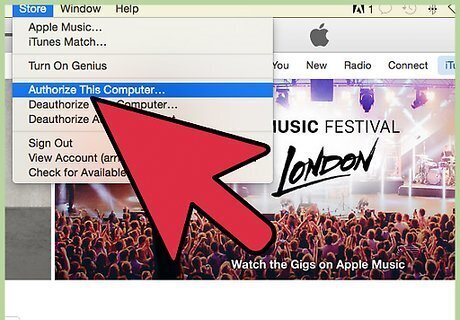
Click the "Store" menu and select "Authorize Computer". This will open a dialog box prompting you for your Apple ID.
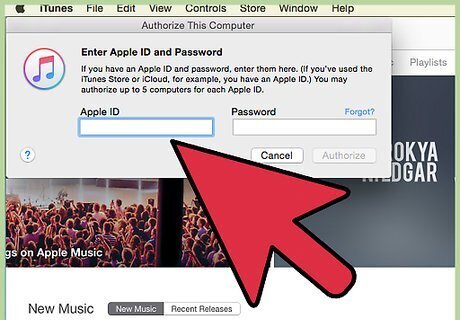
Enter your Apple ID and password and click .Authorize. This will authorize your new computer to access your iTunes purchases. You can only have five computers authorized at one time. Click here for instructions on deauthorizing computers if you have reached your limit.
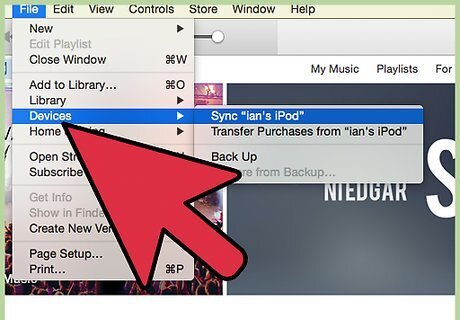
Connect the iPod to the new computer. iTunes should detect the iPod after a few minutes.
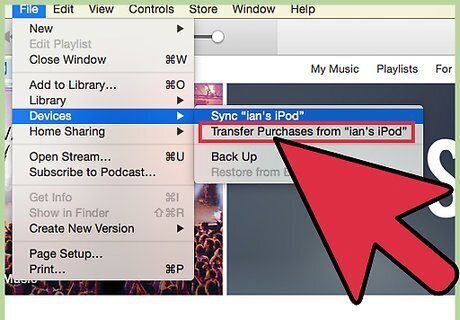
Select .Transfer Purchases from the dialog box that appears. This will copy all of the songs on your iPod that were purchased with your Apple ID onto the new computer. If you have a lot of songs on the iPod, the transfer process may take a while.
iPod Touch (and iPhone and iPad)
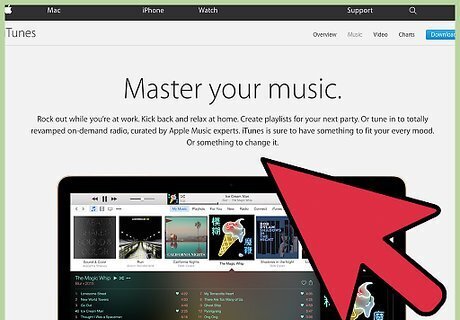
Know what you can and can't do. Unlike the original iPod, the iPod Touch, iPad, and iPhone cannot be accessed by your computer as external hard drives. This means that copying music from your iPod Touch to a new computer is not possible without the help of third-party software (or jailbreaking). You can't use iTunes to import the tracks unless you had previously transferred your iTunes library from your old computer to your new one. Connecting your iPod to a new computer will prompt you to erase everything on the iPod. Most of the third-party programs also allow you to transfer files from iPod Classics.
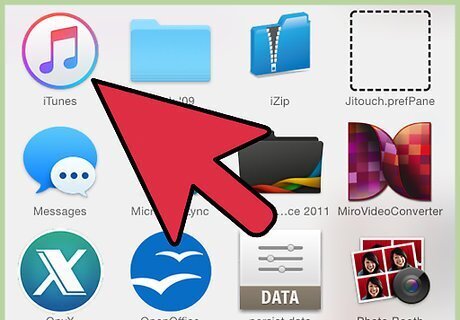
Install iTunes (if you don't have it). Even though you won't be using iTunes to transfer the files, most iPod management programs require iTunes be installed for access to the connection services. Click here for instructions on installing iTunes.
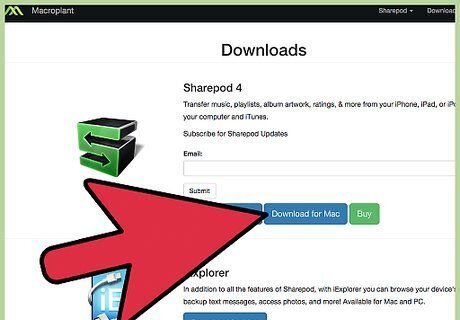
Find and download an iPod management program. There are a large number of programs that will allow you to select music files stored on your iPod Touch and copy them to your computer. Most of these programs cost money, but several have free trials that you can use. Some of the more popular programs include: Sharepod TuneJack iRip iRepo
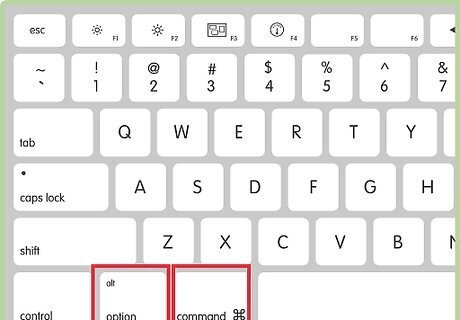
Plug your iPod into your computer. If iTunes is set to auto-sync, hold Shift + Ctrl (Windows) or Command + Option (Mac) while plugging the iPod in to prevent iTunes from automatically syncing and erasing any content on it.
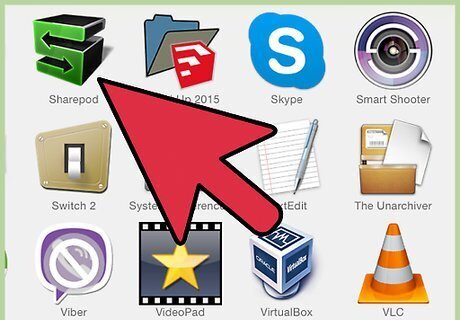
Open the manager program you installed. Each one will work differently, but they all share the same basic principles. This guide will provide a general overview, so refer to the program's support page for any program-specific issues.
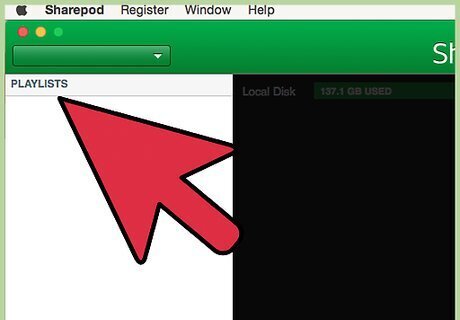
Select the tracks you want to copy to the computer. Some programs such as iRip will give you the option to quickly import all of the tracks on the iPod into the iTunes library on the new computer. You can also choose to select tracks manually and copy only the selection to the computer. Not all programs will import the copied tracks directly into iTunes. If that's the case, or you want to use the songs in another media player, you'll need to copy them to a location on your computer (such as your Music folder), and then add that folder to your iTunes library. Sometimes the file names of the songs will be changed when copying them off your iPod. iTunes or other media players will still be able to read the metadata information on the songs and properly label them. The import process will likely take a while, especially if you are copying thousands of songs.
iPod Classic
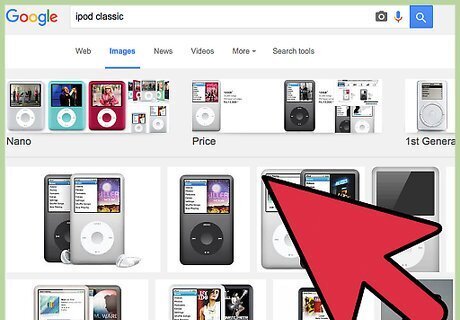
Know what you can and can't do. This method is for classic iPods that you need to extract music tracks from. When you use this method, you won't be able to tell what song is what until you add them to a media players library. This is because the song files are renamed when they're added to your iPod's library. This method is useful for transferring songs that you didn't purchase from iTunes to a new computer or a friend's computer. It is also useful for retrieving your songs when nothing appears on your iPod. This method is not very useful for people trying to extract a single song or just a few out of hundreds. This is because the songs will not have legible file names, so finding the exact song you want will be difficult, if not impossible. This will NOT work for iPod Touches, iPhones, or iPads. Use the method above for those devices.
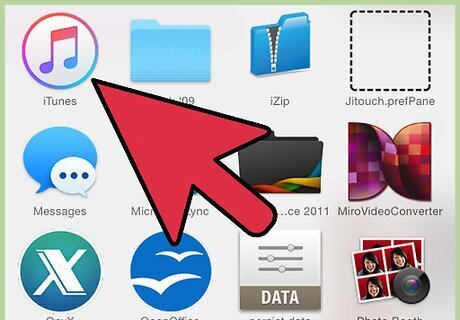
Start iTunes on the new computer. You will need to start the process in iTunes so that the iPod can be put into Disk Use mode. This will allow your computer to open the iPod like an external drive.
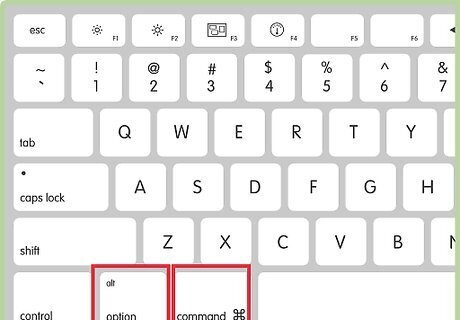
Press and hold Shift + Ctrl (Windows) or Command + Option (Mac) and connect your iPod via USB. Continue to hold the keys until you see the device appear in iTunes. Holding these keys will prevent iTunes from automatically syncing the iPod when it's connected. If your iPod is not staying connected after doing this, select it in iTunes and check the "Enable disk use" box in the Summary window.
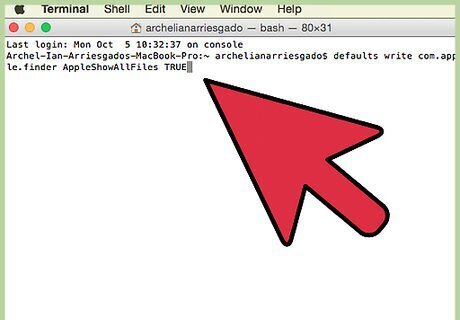
Enable hidden files in your operating system. In order to see the hidden folder containing your music files, you will need to enable your operating system to disable hidden files. The process varies depending on whether you're using Windows or Mac. Windows - Open the Control Panel and select "Folder Options". If you don't see "Folder Options", select "Appearance and Personalization" and then "Folder Options". Click the View tab and select "Show hidden files, folders, and drives". Mac - Open the Terminal and type the following command: defaults write com.apple.finder AppleShowAllFiles TRUE. After running that command, type killall Finder and press Enter to restart file and apply the changes.
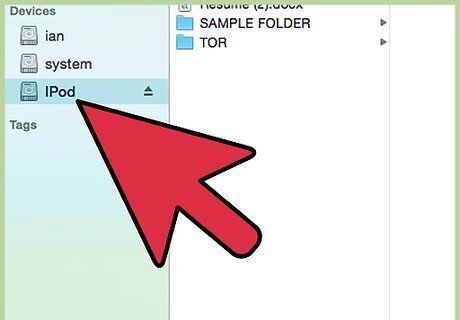
Open the iPod's drive on your computer. In Windows, you can find this in your Computer/My Computer/This PC window. Quickly access this by pressing the Windows key + E. On Mac, your iPod will appear as a drive on your desktop.
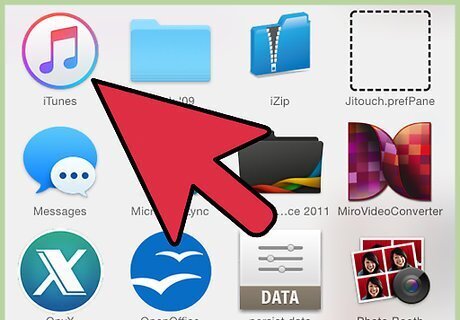
Open iTunes. You can use iTunes to automatically import all of the songs from the iPod into the computer's iTunes library, simplifying the copy process and keeping your music organized. You'll want to change some settings so that your music files are automatically renamed based on their metadata when you add them back into iTunes. If you don't want to add the music to iTunes on the new computer, you can simply open the iPod_Control\Music folder from your iPod drive and copy the files directly to the computer.
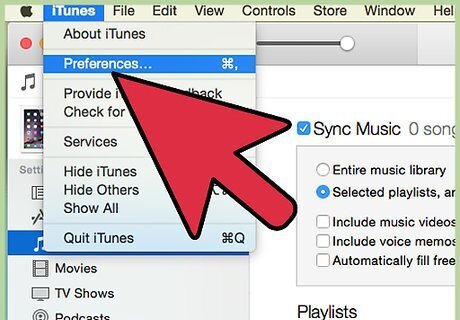
Click the "Edit" or "iTunes" menu and select "Preferences". Click the "Advanced" tab.
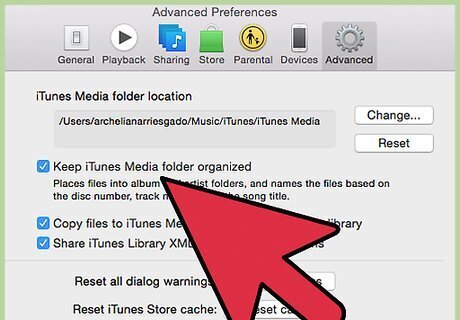
Enable iTunes to organize your music. Check the "Keep iTunes Media folder organized" and "Copy files to iTunes Media folder when adding to library".
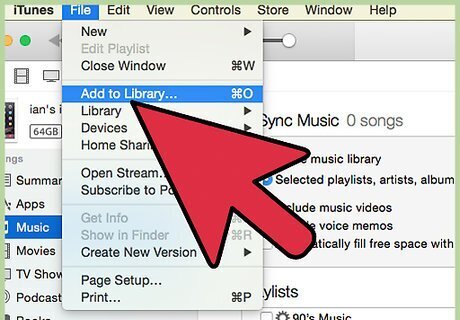
Click the "File" menu and select "Add Folder to Library". If you are using a Mac, click "iTunes" and select "Add to Library".
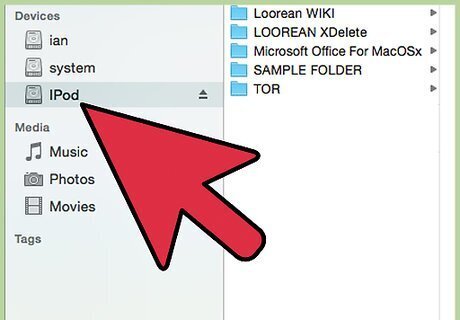
Navigate to and select the .iPod_Control\Music folder. This can be found when you select your iPod from your list of drives. You will only be able to see this if you enabled the displaying of hidden files. If the iPod was originally used on a Mac and your trying to open it on a Windows computer, you will need to use the free HFSExplorer program and copy the files manually. You can download it for free from catacombae.org/hfsexplorer/.
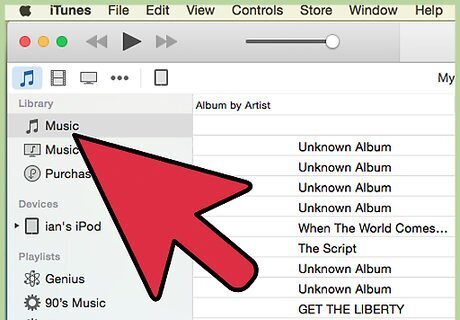
Wait for the files to copy. iTunes will copy the files directly from your iPod and add them to your iTunes Media folder. It will automatically organize your music into subfolders based on the artist and album information.




















Comments
0 comment